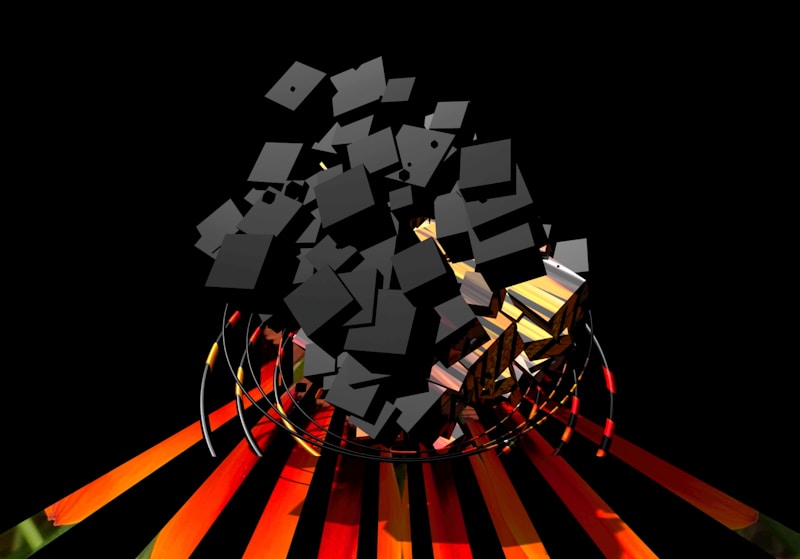10 Questions
What branch of mathematics deals with the manipulation of symbols, expressions, and equations involving numbers, operations, and variables?
Algebra
Which mathematical discipline focuses on the properties of shapes, sizes, and spatial relationships?
Geometry
What branch of mathematics is known for its applications in solving problems through mathematical rules and techniques such as inequalities?
Algebra
Which subtopic of mathematics involves understanding patterns, relationships, and behaviors of the physical world through algebra, geometry, calculus, and vector calculus?
Algebra
What is the main focus of calculus?
Studying the change of functions over time
Which calculus branch studies rates of change?
Differential calculus
In what field is vector calculus commonly applied?
Fluid dynamics
What does the 'No Search' feature in Bing Chat aim to assist with?
Bypassing web search for complex math problems
Which concept does vector calculus introduce in addition to scalar calculus?
Calculating curl and divergence
What makes algebra, geometry, calculus, and vector calculus cornerstones of modern mathematics?
Their role in understanding, analyzing, and modeling the world
Study Notes
Unlocking Mathematics: A Tour through Algebra, Geometry, Calculus, and Vector Calculus
Mathematics, a vast and intricate field, is a language that describes the patterns, relationships, and behaviors of our physical world. Discovering its subtopics—algebra, geometry, calculus, and vector calculus—opens doors to understanding more complex concepts and applications.
Algebra
Algebra is the branch of mathematics that deals with the manipulation of symbols, expressions, and equations involving numbers, operations, and variables. It provides the foundation for solving problems and formulating solutions by using mathematical rules.
Algebra transcends simple equations to systems of linear equations, quadratic equations, and more advanced topics such as polynomials, factoring, and algebraic expressions. Algebraic techniques also extend to solving equations with variables on both sides of the equal sign, known as inequalities.
Geometry
Geometry is a mathematical discipline focusing on the properties of shapes, sizes, and spatial relationships. It encompasses topics such as points, lines, angles, polygons, circles, and more complex shapes.
Geometry's applications range from everyday life to more advanced fields such as architecture, art, and technology. Geometry helps us understand concepts such as volume, area, surface area, and the properties of common shapes like triangles, circles, and squares.
Calculus
Calculus is a cornerstone of modern mathematics, dealing with the continuous change of functions and the related concepts of convergence of infinite sequences and series. It is divided into two branches: differential calculus (the study of rates of change) and integral calculus (the study of accumulation of quantities).
Calculus involves techniques for finding the gradient of a curve, the area under a curve, and the area between two curves. It has numerous applications in physics, engineering, economics, and many other fields, including predicting the spread of diseases, calculating the speed and acceleration of moving objects, and optimizing various processes.
Vector Calculus
Vector calculus is an extension of calculus that deals with vectors, which are quantities that have both magnitude and direction. Vector calculus extends the concepts of scalar calculus to three dimensions and introduces new ideas such as vector fields, gradient, curl, and divergence.
Vector calculus has numerous applications in physics, engineering, and other fields, including understanding fluid dynamics, electromagnetism, and the behavior of elastic materials. It also enables us to study topics like the conservation of mass, conservation of energy, and Gauss's law for electric fields.
The Microsoft Bing Chat "No Search" Feature
Recently, Microsoft introduced a feature to Bing Chat that allows users to bypass web search results when posing questions. This feature, known as "No Search," is particularly beneficial for situations involving complex mathematics problems, where the search results may not add value or may return unspecific or non-detailed information.
While the "No Search" feature is not available to all Bing Chat users, it is an exciting development that demonstrates the potential for AI to help us solve complex problems without relying on web searches. This feature may eventually enhance our ability to learn and understand mathematics more effectively and efficiently.
Conclusion
Algebra, geometry, calculus, and vector calculus are the cornerstones of modern mathematics. They allow us to understand, analyze, and model the world around us. As we delve deeper into these subtopics, we'll discover their applications in myriad fields, from everyday life to cutting-edge technology. The recent introduction of the "No Search" feature for Bing Chat may revolutionize our approach to learning mathematics by providing a more tailored and focused learning experience.
Explore the fundamental branches of mathematics—algebra, geometry, calculus, and vector calculus—each offering unique insights into the patterns and structures of the physical world. Discover the applications of these mathematical concepts in various fields and the recent AI-powered feature in Bing Chat that enhances problem-solving capabilities.
Make Your Own Quizzes and Flashcards
Convert your notes into interactive study material.



